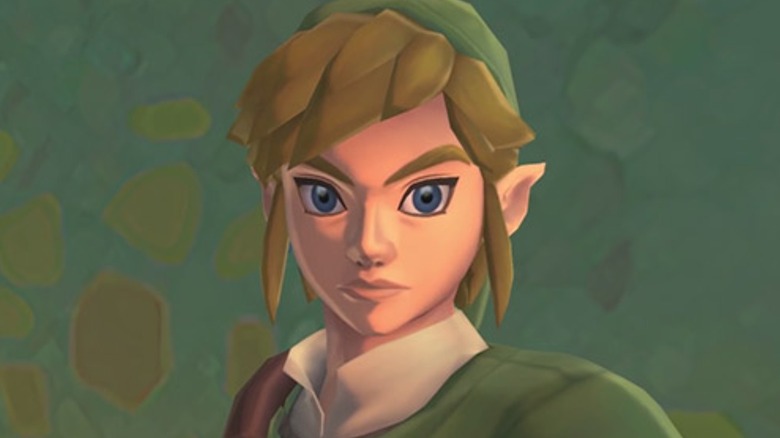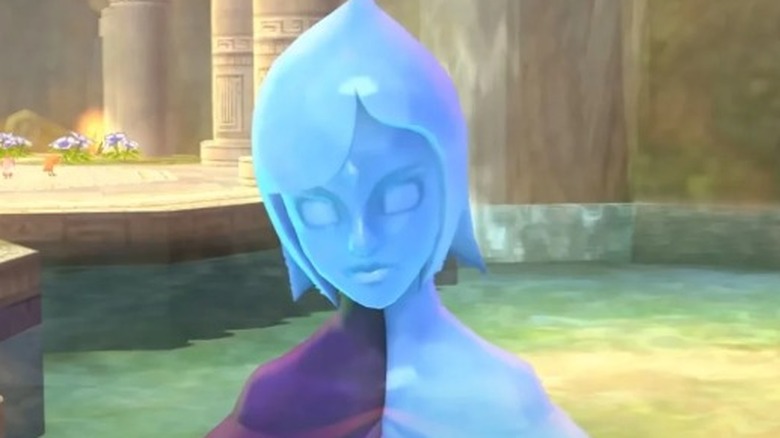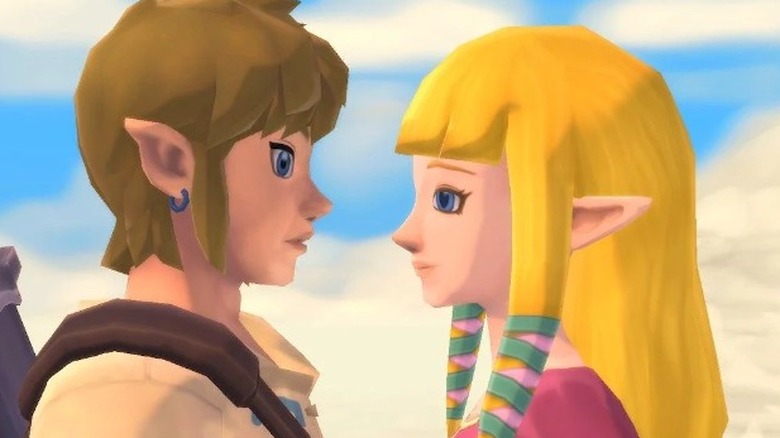The Ending Of Skyward Sword Explained
Fans reacted to Nintendo's decision to rerelease "Skyward Sword" fairly well. After all, the company vowed to correct the game's original wonky motion controls in the new remaster, solving the game's biggest issue. Nintendo chose to keep the plot of "Skyward Sword" the same, focusing instead on converting the mechanics of the game to the Switch and improving the graphics for a new generation of gamers.
The ending of "Skyward Sword" establishes several important aspects of the "Zelda" series, like the cycle of reincarnation and the origins of the Master Sword. That being said, the final part of the game includes some timey-wimey shenanigans that are enough to confuse even the most dedicated "Zelda" fan.
"Skyward Sword" emphasizes several themes throughout its plot, resolving them neatly at the end while leaving plenty for future games to investigate. The game's ending uses the themes of loyalty and exploration to establish a perfect beginning for the rest of the "Zelda" timeline and set up the characters of "Skyward Sword" for the adventures ahead.
Loyalty seals Demise away
Impa and Fi use loyalty to protect their friends, as well as the world in general. After Link travels to the past and defeats Demise, Fi uses her magic to seal it away, while Impa agrees to watch and protect the sword. After Link and Zelda return to the future, they discover that Impa held true to her promise after all those years. She dies elderly and content at her job well done. Through gestures of friendship and dedication to the wider world, both Fi and Impa ensure the safety of the land that will become Hyrule. Both characters essentially sacrifice their lives in order to protect their friends and their home.
Players get to see relationships develop between Link and Fi, and Zelda and Impa, so the decision for Impa and Fi to stay behind in the past feels emotionally significant at the end of the game. Some fans disliked Fi's wooden personality, but the ending of "Skyward Sword" changed at least one gamer's mind about the talking sword. "Fi's 'I'm happy to serve you, but now I must sleep forever' made me a little regretful for having cast her off so much during battle," they wrote in a Reddit post.
Many gamers felt annoyed by Fi's random facts and interjections, and one of the big differences between the original "Skyward Sword" and its 2021 remaster is the ability to ignore some of Fi's notifications. Still, her sacrifice at the end of the game might make more than one player regret not listening to her advice when they had the chance.
Exploration establishes Hyrule
Without a sense of adventure and exploration, the ending of "Skyward Sword" might have been much different. After Link, Zelda, and Groose return home, the Surface is open to all Skyloft residents, uniting the two separate kingdoms for better or worse. Zelda and Link stay on the Surface to protect the Triforce, exploring and creating Hyrule in the process.
Of course, both Link and Zelda begin this new land of Hyrule with a curse hanging over their heads. "Skyward Sword" establishes the cycle of reincarnation in the "Legend of Zelda" series. Link and Zelda's descendants, and their descendants' descendants will all be cursed with a connection to the Triforce and a responsibility to the land of Hyrule. As a parting gift, Demise tells Zelda and Link that they'll now be forever bound to each other and the world itself. However, the details of the curse itself are vague.
One fan described the curse clearly, saying that Zelda and Link don't reincarnate, but that the curse is passed down from generation to generation. It would make sense, then, that Zelda typically takes the form of royalty, which is a hereditary title. As with many things, there's been debate in the fan community about how the curse from "Skyward Sword" affects the series' timeline, and gamers may never have a straight answer. Like a lot of "Zelda" quirks, the reincarnation cycle is one of the things only true fans can understand.
Regardless, Link and Zelda embrace their new lives enthusiastically, excited to explore the Surface and begin on the new adventure before them.



